Laurence Anyways
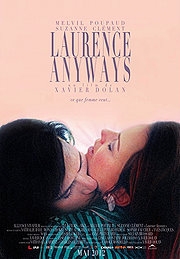
Lawrence Anyways begins with Laurence Alia and Fred Belair, his girlfriend of two years, living happily in the late 80s. They’re young, rebellious and clearly very much in love. The signs are there, however, that Laurence is not entirely happy. As a high-school teacher, he watches longingly as his female students play with their hair, placing paperclips on his fingers to replicate extravagant nails. It doesn’t take long (within the context of the film – for the characters our story takes place over an entire decade) for Laurence to reveal to Fred that he wants to be a woman; that he’s always wanted to be a woman; that he’s always been a woman, just born into the wrong body.
The way this revelation affects their relationship – and the way the rest of the world views it – forms the crux of the film, and as love stories go, there are few as epic, as hard-fought or as difficult as this. The two leads are tremendous – Melvil Poupaud’s big, soulful eyes conveying the weight of the gender he’s felt trapped in all his life – while Suzanne Clément is a revelation as poor, confused Fred. Her reactions when Laurence comes clean to her are as believably raw as anything you’re likely to see, while the explosive, stand-out scene in a cafe, when the immense pressure of having her life irrevocably changed finally spills over and causes her to erupt in a very public melt-down, is astonishing. The sheer furious conviction that Clément brings to that moment will give you shivers.
Arguably the other main star is the soundtrack, which is overtly in-your-face when appropriate, and subtly understated when it needs to be. Utilizing contemporary songs from the period, such as The Cure’s The Funeral Party and Visage’s Fade To Grey, Laurence Anyways is peppered with moments where the narrative almost pauses, and the film descends into wonderful, fantasy-like music-video sequences; be it Fred glamming it up at a ball, or Fred and Laurence cavorting around a frozen landscape while various items of multi-coloured clothing rain down around them, seemingly from nowhere. These flights of fancy employ a different style to the naturalistic tone of the rest of the film, but somehow the faster edits and more stylised imagery segue seamlessly into the whole.
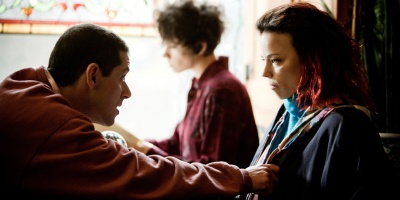
Dolan wanted to set the film in the 90s, feeling that this was the era when prejudices regarding homosexuality and transgenderism began to ease, but Laurence still doesn’t have an easy go of it. His job; his family; even complete strangers – all either move to stay completely out of his way, or actively place themselves in his way. No better is this expemplified than in the opening sequence, as the hitherto unseen Laurence-as-a-woman struts down the street, collecting awkward glances and threatening stares from all walks of life, set to Fever Ray’s If I Had A Heart, where the brooding bass captures the undercurrent of threat perfectly. The film – like its characters – is under no illusions about the gravity of Laurence’s transformation – this is no romanticised vision of a flower blooming.
Less successful are the moments of pretention that aren’t part of any extended musical interlude; a moth climbing its way out of Laurence’s mouth in the middle of a conversation, for example. We’re sure these moments are simply wrought with symbolism, but without the confines of the clearly defined musical sequences, they contribute to a bloated run-time. Dolan is clearly a self-indulgent director, and while this leads to some of the film’s more interesting and memorable imagery, it also pushes Laurence closer to three hours than two – certainly too long for the relatively simple (if complex) story being told. But despite the simplicity – essentially, this a will-they/won’t they – Dolan keeps things unpredictable along the way, and you’ll be left guessing as to where our pair of star-crossed lovers will be left at the end of it all.
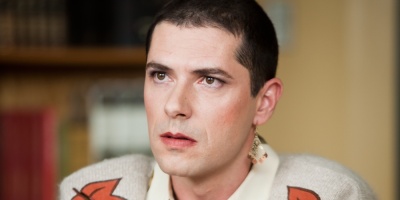
Lawrence Anyways is a powerfully honest, naturally raw look at what happens when one man has to embrace his sexual identity, and the ripple effect it has on his life, and the lives of those around him. But principally it’s a love story; a beautifully told, heart-wrenching, inspiring and epic love story, and one that will stick long in the memory thanks to committed and astonishing performances from the two leads. The film’s principal theme is “you can’t have everything“; can Laurence fly in the face of such a pessimistic mantra and keep both his gender and his soul-mate? Well, whether Laurence triumphs come the end of it all is hard to define, and we won’t spoil that here, but one thing’s for sure – Lawrence Anyways certainly does.

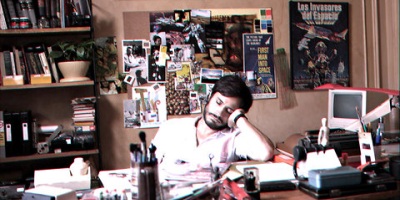
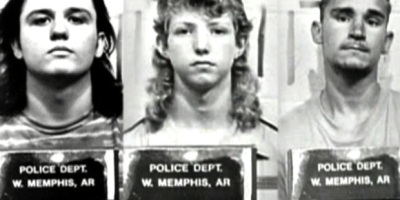

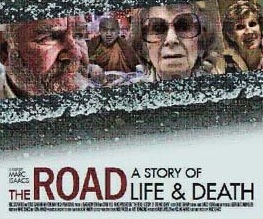
Recent Comments